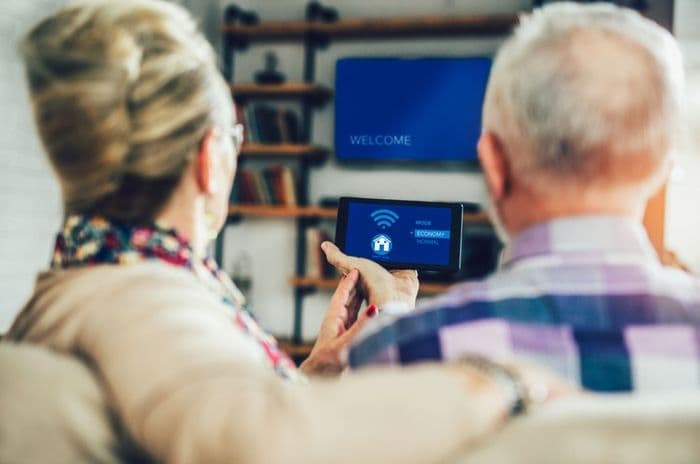Home > News > Could 'smart homes' be the key to tackle loneliness?
Could 'smart homes' be the key to tackle loneliness?
Government funding has been awarded to help older people learn to use the internet and to drive down loneliness in this age group.
An innovative scheme is looking to develop demonstration 'smart homes' to help older people develop their digital skills and reduce loneliness.
Funded by the Department for Digital, Culture, Media and Sport (DCMS), the project is one of three to be awarded £400,000 to improve the lives of older and disabled people.
The money will be used to create a number of smart homes where digitally savvy older residents can demonstrate the technology and the benefits it can bring.

A home for the future
The homes are being created in West Essex, with a focus on rural areas. Residents will be taught how to make the most of tech, before having their homes kitted out with the latest smart technology.
Once comfortable, these residents will open their homes for other older people to visit, allowing them to learn first-hand from their peers what smart technology can mean to them.
Some of the planned activities include being able to book GP appointments online, learning how to contact friends and family by video and using smart tech to control household appliances.
The scheme will also provide younger 'Digital Buddies' who will lend support and assistance to those looking to improve their digital skills.
The digital exclusion issue
Figures from the Office of National Statistics (ONS) show that 8.4% of adults in the UK have never used the internet.
In many cases, this is because they don't understand the technology, but in some cases its through lack of opportunity.
The Governments recently extended Better Broadband scheme aims to tackle the lack of high speed internet access in rural areas, giving more people the opportunity to learn to use digital services.
However, digital exclusion is a more acute problem for older people, with almost half of all single pensioners never having used the internet at all.
Research by the International Longevity Centre UK (ILCUK) has revealed a wealth of positive effects and social benefits to going online for elderly people.
These included better financial inclusion, improved independence, reduction in social isolation and loneliness as well as a generally improved quality of life.
A top Christmas present
One of the most popular Christmas gifts for the last couple of years has been the smart speaker. From Amazon Echo to Google Home, smart speaker ownership grew by 98.6% in 2018.
Although ownership is predicted to slow in 2019, around 9.5 million UK residents already have at least one in their home. Ownership is predicted to increase by around a third over the next 12 months.
Public Health England has said that such voice recognition devices could be instrumental in tackling loneliness in older people.
Devices such as Alexa from Amazon and the Assistant from Google could help pensioners feel less isolated, encouraging them to be more active and giving them reminders for things like taking medication.
Professor Sir Muir Gray, the clinical advisor to Public Health England, has said that hearing another voice could 'help prevent feelings of loneliness and isolation'.
Although largely a novelty item at the present time, millions of pounds are being poured into research to develop the skills of these devices. It is hoped that in the future the two-way conversation function will become more engaging and lifelike.
Get insider tips and the latest offers in our newsletter

We are independent of all of the products and services we compare.

We order our comparison tables by price or feature and never by referral revenue.

We donate at least 5% of our profits to charity, and we have a climate positive workforce.
Latest Technology Guides

Technology
Which is the best air purifier?
Technology
Kobo Elipsa review
Technology
Best e-readers for older peopleLatest Technology News

Technology
Right to repair rules come into force
